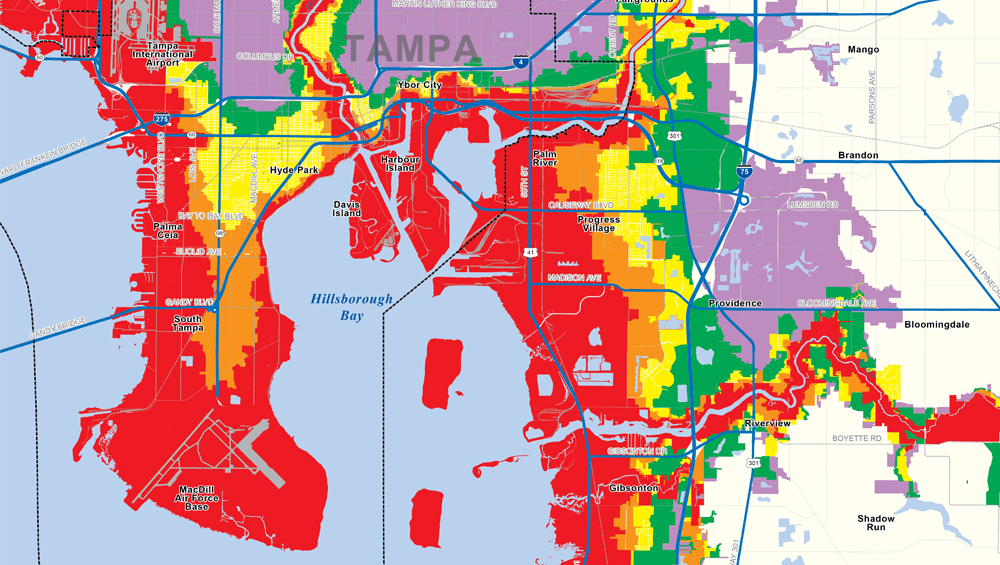Emergency Services and Shelters: Where to Find Help During Hurricane Milton
As Hurricane Milton approaches, residents of affected areas must prepare for the potential impact of this powerful storm. Knowing where to find emergency services, resources, and evacuation shelters is crucial for ensuring safety. In this blog post, we will explore the key aspects of emergency preparedness and the resources available to residents during Hurricane Milton.
Understanding Hurricane Milton
Hurricanes are formidable natural disasters characterized by high winds, heavy rainfall, and the potential for flooding. Hurricane Milton, like many storms before it, poses significant risks to life and property. In order to mitigate the impact of such storms, understanding how to access emergency resources and manage evacuation plans is essential.
 Assessing Your Risks: What Is My Evacuation Zone?
Assessing Your Risks: What Is My Evacuation Zone?
One of the most pertinent questions residents must answer in the face of an impending hurricane is, "What is my evacuation zone?" The Florida Department of Emergency Management (FDEM) has established a comprehensive system of evacuation zones to help residents understand their risk levels and to provide clear instructions during an emergency.
To determine your evacuation zone, residents can visit the FDEM website where interactive maps and resources are available. These tools allow individuals to input their address and find their specific zone, as well as receive information on the latest emergency alerts and evacuation orders.
Understanding your evacuation zone is vital for your safety. Areas designated as Zone A are typically the most vulnerable to storm surges and flooding, while those in Zone B and beyond may experience lesser levels of risk. During Hurricane Milton, residents in designated evacuation zones may face mandatory evacuations to ensure their safety.
Mandatory Evacuations and What to Do
In the event of a mandatory evacuation order issued in Milton or surrounding areas, it is crucial to respond swiftly. Authorities will broadcast evacuation orders through various channels, including local radio and television stations, emergency alert systems, and the National Hurricane Center’s updates. As Hurricane Milton approaches, staying tuned to reliable sources for live updates is essential.
When faced with a mandatory evacuation:
- Follow Official Orders: Adhering to guidance from local officials is paramount. Ignoring an evacuation order can put not only your life at risk but also the safety of first responders who may need to rescue those who remain.
- Prepare Your Emergency Kit: Before evacuating, ensure that your emergency kit is ready. This should include enough water, non-perishable food, medical supplies, flashlights, batteries, and important documents.
- Secure Your Home: If time permits, take steps to protect your property by boarding up windows, securing outdoor belongings, and turning off utilities if instructed to do so.
- Know Your Route: Be aware of multiple routes for evacuation. Traffic may be heavy, and some roads may be closed due to flooding or debris.
- Inform Other Residents: If you are able, check on neighbors, especially the elderly or those with disabilities, to ensure they are aware of the evacuation order and know how to get to safety.
Finding Emergency Shelters
For those evacuated from their homes, the State of Florida has established emergency shelters across the region. These shelters provide temporary refuge for residents during hurricanes, offering basic needs such as food, water, and safety.
To find the nearest shelter during Hurricane Milton, visit the FDEM website or contact local emergency management officials for an updated list of open shelters. Many local schools, community centers, and churches serve as designated shelters. Be sure to inquire about the specific provisions available at these shelters, as some may be equipped to host pets, while others may not.
Additional Emergency Resources
Apart from shelters, various resources are available to assist residents during Hurricane Milton.
- Florida Department of Emergency Management: The FDEM serves as a centralized resource for obtaining information about emergency procedures, evacuation routes, and up-to-date storm predictions. Residents can also utilize their mobile app for timely alerts and information.
- National Hurricane Center: The National Hurricane Center (NHC) provides invaluable forecasts, storm tracking, and guidance specific to tropical systems. Their website offers live updates and detailed information about Hurricane Milton, helping residents monitor the storm's trajectory and potential impact.
- Local News Outlets and Emergency Broadcast Systems: Stay informed through local news stations, radio channels, and emergency alert systems that provide real-time updates about conditions, evacuation orders, and resources available in your area.
Conclusion
As Hurricane Milton draws near, it is essential for residents of Milton and surrounding areas to stay informed and prepared. Understanding evacuation zones, following mandatory evacuation orders, and knowing where to find emergency shelters and resources are vital for ensuring one’s safety during this time of crisis.
Remember that being proactive and prepared can make a significant difference in your safety and well-being. Make a plan, stay informed with resources provided by the Florida Department of Emergency Management and the National Hurricane Center, and take the necessary steps to protect yourself and your loved ones during Hurricane Milton.
Stay safe, and may we all weather this storm together.